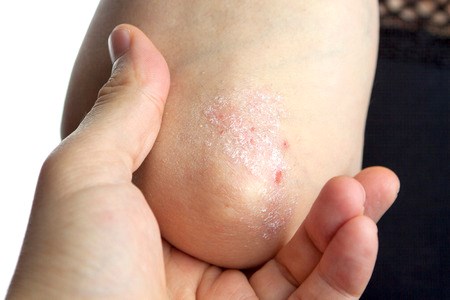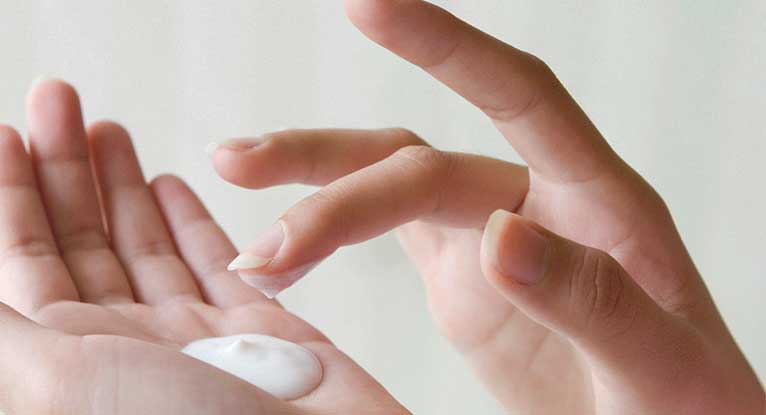
Psoriasis is a skin disorder affecting any part of the body. It appears to be red plaques capped with silver scales and can mostly affect the elbows and knees, shin, lower back, and scalp. Typically, our skin is undergoing 15 cycles before it is completely renewed in 30 days. For people with psoriasis, the skin undergoes a fast renewal process and misses a specific process making it five cycles instead of 15. The affected area then forms scaly plaques which are itchy and inflamed.
Symptoms Of Psoriasis:
- Pain and swelling in the affected area
- Itchiness in the affected area
- Redness and bleeding in the affected area
- Silver scales on the red patches
- Cracks in the dry regions of the extremities
- Swelling joints
- Pitting of nails
Causes of Psoriasis:

- Genes
- Stress
- Infections
- Cuts
- Alcohol
Things To Know About Psoriasis:
- Some studies showed a decrease in psoriasis when patients avoided the consumption of acidic foods or drinks like coffee and soda.
- Some reports suggested that a vegetarian diet contributes to the improvement of symptoms of psoriasis. Eating less protein and more vegetables can aid in treating this condition.
- Alcohol plays a considerable part in the development of psoriasis. According to researchers, heavy drinking can trigger psoriasis, and it increases the risk of some infections.
- Vitamin D can also help in treating psoriasis. Studies show that vitamin D produced from sunlight aids in the treatment of psoriasis. Dr. Michael Holick, M.D., Ph. is a Professor of Medicine and an endocrinologist who studied vitamin D intensively.
- There are different types of psoriasis that can be diagnosed by a physician.
Different Types Of Psoriasis:
- Erythrodermic psoriasis is a rare but severe type of psoriasis. The skin almost all over the body appears to be burned.
- Guttate psoriasis consists of small pink to small red spots on the skin.
- Inverse psoriasis doesn’t cause the skin to be scaly, but it appears to be smooth and shiny on the affected area.
- Nail psoriasis affects the nails.
- Palmar-Plantar psoriasis affects the palms of the hand or soles of the feet.
- Plaque psoriasis is characterized by silver scaly plaques which commonly appear on elbows, knees, and lower back.
- Pustular psoriasis has pus inside the bumps.
- Psoriasis of the scalp appears in the head or the scalp.
- Psoriatic arthritis is a condition where a person with psoriasis also develops arthritis.

Treatment:
- Dovonex is a prescription cream or ointment known to treat psoriasis.
- Tegison is a prescription of superpotent vitamin A taken orally also known to treat psoriasis.
- Multivitamins composed of folic acid and iron are also beneficial in the treatment of psoriasis.
Traditional Remedies:
- Olive oil helps in the hydration of the skin.
- Garlic has a medicinal property which fights sickness and
- Licorice can help with skin inflammation.
Psoriasis is surely an unpleasant skin disorder to have. Just like other diseases, it affects all the aspects of a person’s life, but in psoriasis, a person may have poor social interactions due to fear of scaring people off. However, people should know that psoriasis is not contagious, so there shouldn’t be any fear of getting it by being around a person who has it.
It is crucial that the patient seeks the help of a physician in dealing with psoriasis. self-medication might cause a worsening of the condition.
